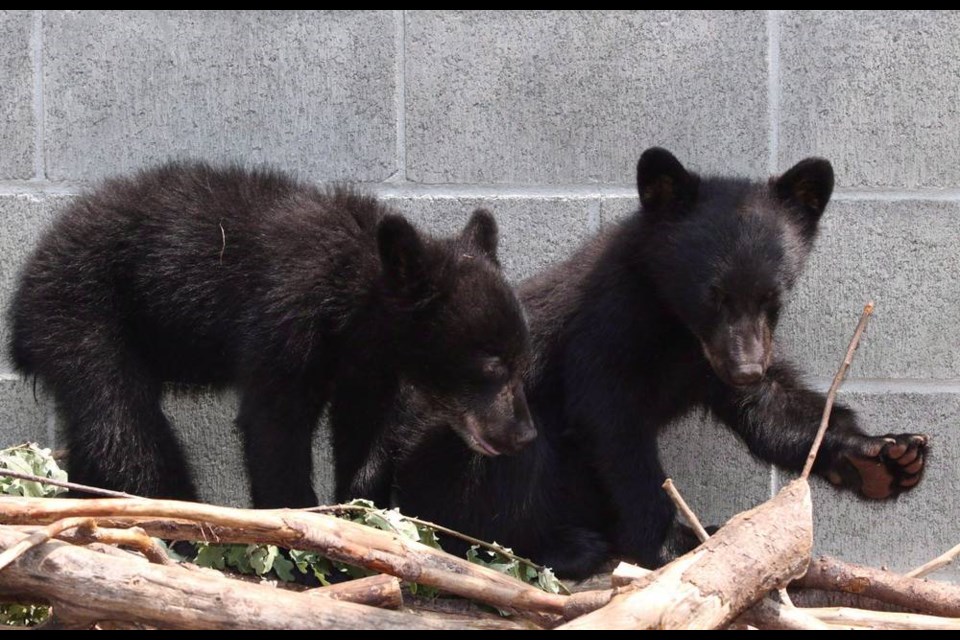A former B.C. conservation officer who made international headlines in 2015 for refusing to kill two bear cubs is hoping the province will reinstate him as a special constable in the wake of a decision by the Supreme Court of Canada.
On Thursday, the high court dismissed an application by the B.C. Government and Service Employees Union to appeal a B.C. Court of Appeal ruling that found Bryce Casavant was improperly dismissed from his job.
The Supreme Court’s refusal to hear the case leaves the appeal court ruling in place.
“I’m hoping that the province and the union respect the rule of law and the decisions that have been made by the B.C. Court of Appeal and now the Supreme Court of Canada,” Casavant said by phone from Port Alberni. “My position has always been that I should be reinstated. I’ve been very clear with the province on that.”
Casavant refused an emailed order from a superior to kill two bear cubs whose mother was killed after she entered a home in the Port Hardy area through an open door. He took the eight-week-old cubs to a veterinarian, who assessed them and transferred the animals to the North Island Wildlife Recovery Centre.
At the time, Casavant said he was required to shoot the mother bear because she had entered a residence. He maintained he had discretion whether to kill or spare the cubs because there was no evidence they had been in the home or had become habituated to garbage.
Casavant was dismissed as a conservation officer and lost his security clearance. He was transferred to the Ministry of Forests, Lands, Natural Resources and Rural Development as a forest investigator.
It was the beginning of a 5 1/2-year legal battle over his termination.
The BCGEU initially filed a grievance in the case but eventually reached a settlement with the province, which Casavant asked to be set aside. Casavant then fought and lost a judicial review at the B.C. Supreme Court.
In June 2020, the B.C. Court of Appeal decided in his favour, unanimously ruling that the B.C. Labour Relations Board didn’t have the authority to rule on the matter because Casavant’s dismissal should have been dealt with under the Police Act.
“When the Court of Appeal decision came down in my favour, I was sitting at home crying for 15 or 20 minutes. The emotional toll this has taken on my family has been extreme,” said Casavant.
In September, the union sought leave to appeal the decision at the Supreme Court, a decision Casavant described as “gut-wrenching.”
The BCGEU’s focus has been on resolving the confusion and uncertainty the June decision by the appeal court created for members, president Stephanie Smith said Thursday.
“A successful appeal to the Supreme Court would have provided resolution, but was never the only option available,” she said. “We continue to work on behalf of our 500-plus members with special provincial constable status to ensure they have the full protection of their duly bargained collective agreement.”
The BCGEU was fighting to help Casavant retain his conservation officer position throughout the grievance arbitration process, it said in a statement.
“Since we aren’t involved in Bryce’s current efforts to get reinstated, it would be inappropriate for the union to comment.”
Casavant said he has no regrets and has always stood by his decision to spare the lives of the cubs.
“I’m hoping now that door is closed. I’m hoping the province will respect the rule of law and case law and allow me to get back to work and get on with the job I’m doing.”
B.C. conservation officers are not just fish and wildlife rangers. They are appointed under the Police Act, he said, adding a constable must always have the ability to decide whether to shoot or not to shoot.
“The cubs are cute and fuzzy and cuddly. But more importantly, and ethics aside, there’s no mechanism to order a constable to kill. That’s really the core of the legal issue.”
Casavant is hoping an all-party committee reviewing the Police Act will examine the government’s role in ensuring constabulary independence.
The cubs, nicknamed Jordan and Athena, were released into the wild in the summer of 2016. They were outfitted with radio collars and tracked for a winter until they hibernated and the collars fell off, as designed.
“As far as I know, they’re still running around, although they’d be old bears now,” said Casavant.



